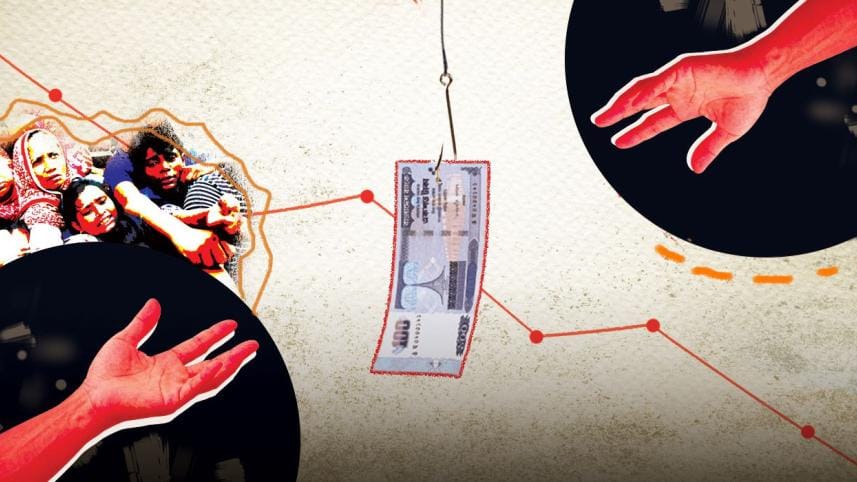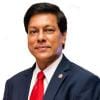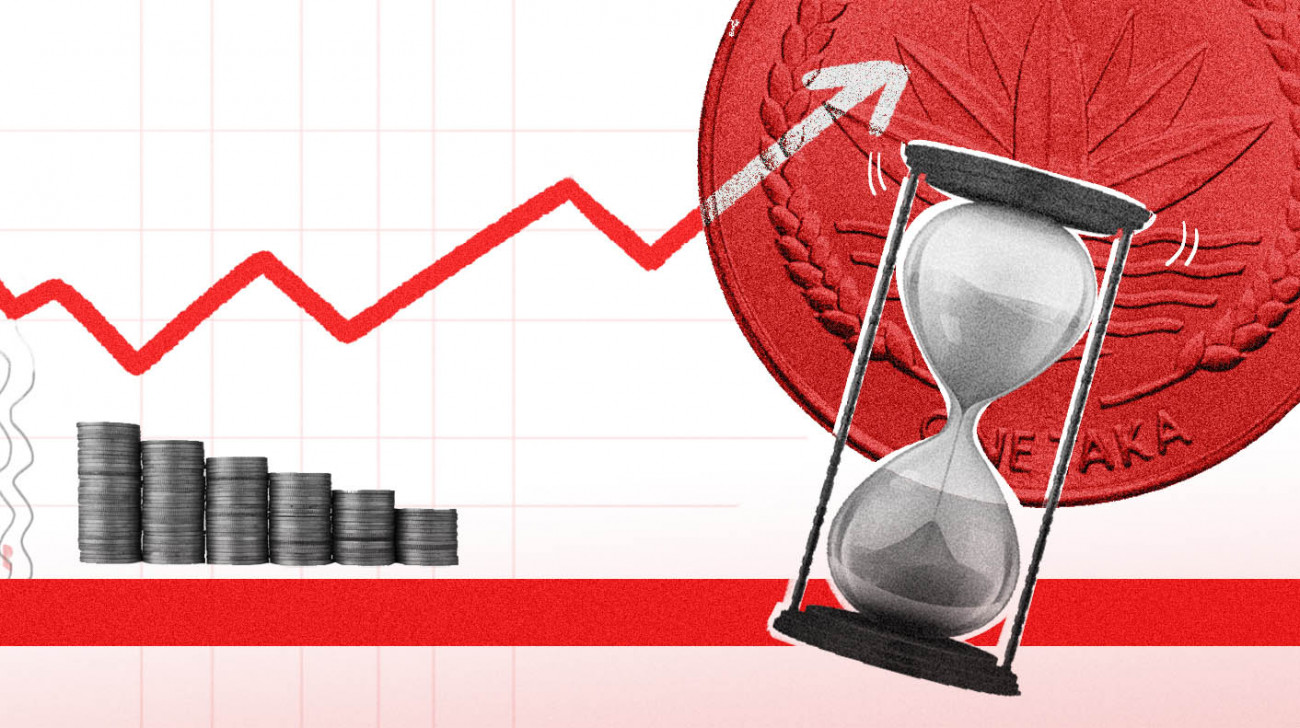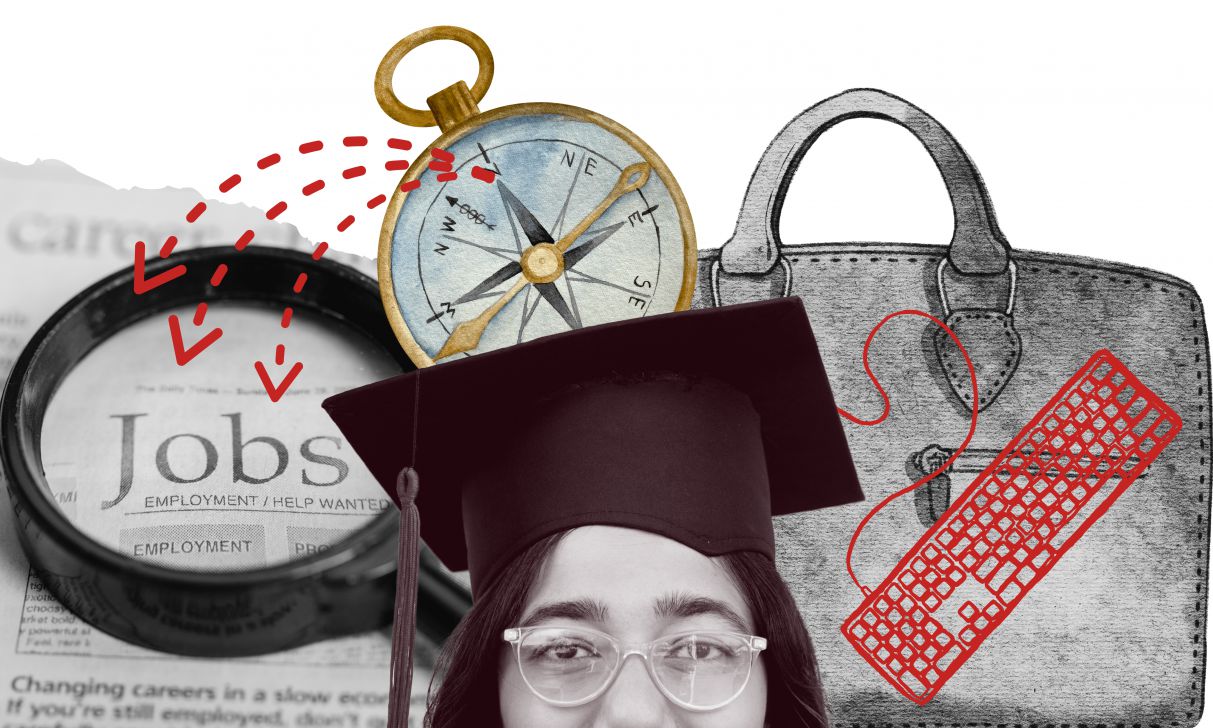Bangladesh’s development model is failing its people

On June 2, 2025, the Finance Division, in its Medium-Term Macroeconomic Policy Statement, forecast that Bangladesh's economy would surpass the $500 billion mark in FY2026-27. This optimistic outlook from the government comes at a time when several international development partners, including the World Bank, IMF, and Asian Development Bank, have made far more cautious projections. The World Bank expects Bangladesh's economy to grow by 3.3 percent this year, the Asian Development Bank forecasts 3.9 percent, and the IMF predicts 3.76 percent GDP growth.
In economic discussions, growth and development are often used interchangeably, but they are not the same. Economic growth refers to the rise in a country's GDP, reflecting how much production has increased compared to the previous year. It is purely a quantitative measure. In contrast, economic development is a qualitative process involving structural changes in the economy and society that lead to improved living standards. It focuses on broader socio-economic progress, not just production figures.
It is widely believed that economic growth creates jobs and reduces unemployment. Yet in Bangladesh, growth has not produced enough decent work to meet the needs of our youthful and expanding population. Between 2013 and 2017, average annual GDP growth was 6.6 percent, but job growth stood at just 0.9 percent a year. At present, around 65 percent of the population is of working age, yet finding a decent job remains a major challenge. Nearly 85 percent of the workforce is engaged in the informal sector, where wages are low, jobs are insecure, and there is no social protection. The Bangladesh Bureau of Statistics reports that unemployment rose from 4.07 percent in mid-2023 to 4.49 percent in mid-2024, leaving over 26 lakh people without work. This points to what economists call "jobless growth"—an economy that expands but leaves many behind.
The benefits of growth have also been distributed unevenly. While average household income rose more than fifteenfold—from Tk 1,917 in 1983-84 to Tk 32,422 in 2022—much of this wealth has gone to a privileged few. Data shows that the top 5 percent of households control 30.04 percent of total income, while the top 10 percent hold 40.92 percent. In contrast, the income share of the bottom 50 percent has fallen from 20.23 percent in 2016 to just 19.05 percent in 2022. This widening gap between rich and poor is alarming for any society hoping to build fairness and stability.
Food inflation, which exceeded 14 percent in late 2024, has pushed many working families closer to poverty. The national poverty rate is projected to rise from 18.7 percent in 2022 to 22.9 percent in 2025. The share of people living in extreme poverty—those earning less than $2.15 a day—could almost double to 9.3 percent, adding around 30 lakh more to this group. The Gini index, a key measure of income inequality, is expected to rise from 33.4 in 2022 to 36.1 in 2025, showing that wealth is becoming more concentrated among the rich.
GDP figures also fail to capture the harsh realities of unplanned urbanisation, environmental degradation, and weak public services. Bangladesh's industrial growth has come at a heavy environmental cost. Rivers such as the Buriganga, Turag, and Shitalakhya are now severely polluted due to unregulated industrial establishments and unplanned urbanisation. Factories routinely dump untreated waste into these rivers, contaminating the water with toxic chemicals and heavy metals. Dhaka, in particular, suffers from poor urban management and inadequate water and sanitation services. Clogged drains and canals worsen flooding during the monsoon, leading to damage and displacement. Air pollution from unfit vehicles, factories, brick kilns, and unregulated construction has made Dhaka's air dangerously toxic. According to the 2025 Economist Intelligence Unit's (EIU) Global Liveability Index, Dhaka ranks as the world's third least liveable city.
Meanwhile, our healthcare system remains among the weakest in the region. There are too few medical facilities, overstretched staff, and shortages of essential medicines and equipment. Soaring out-of-pocket healthcare expenses pushed around 61 lakh people into poverty in 2022. Many reduce spending on food or education just to cover medical costs. The World Food Programme's 2023 report revealed that 36 percent of Bangladeshis face food insecurity. Poor nutrition weakens labour productivity, which stands at just 10.4 percent for Bangladesh—far behind South Asia's average of 16.3 percent and the 27.8 percent average for other Asian countries, according to the Asian Productivity Organisation.
Education, which should empower people and open opportunities, is also failing to deliver. Our education system does not align with the needs of human development or the job market. There is a lack of adequate communication and collaboration between the government, academia, and industry. Each year, over 6.5 lakh university graduates enter the job market, yet many end up in low-paying jobs that do not match their skills. This fuels growing frustration among young people, which can destabilise both society and the economy.
Despite promises by the interim government to improve health and education, the FY2026 budget has slashed development spending in both sectors. This raises serious doubts about the government's ability to improve essential services, reduce poverty, and build human capital.
We need to understand that the frequent student protests, workers' strikes, and road blockades we witness are not isolated acts of violence or mere political stunts. They are warning signs of a society under immense pressure, where hopes are shattered, dignity is denied, and opportunities remain elusive for many. When young people set buses ablaze or workers block roads, it is often an expression of deep frustration from those who feel abandoned by a system that promises prosperity but delivers suffering. Their anger is rooted in genuine grievances: lack of decent jobs, poor healthcare and education, rising inequality, and the belief that economic benefits favour only a privileged few.
Bangladesh stands at a decisive crossroads. Continuing to chase GDP numbers while neglecting fairness, human development, and environmental sustainability will only deepen inequality and social divides. True progress is not measured by GDP alone, but by how fairly growth benefits are shared, how well the vulnerable are protected, and how responsibly we safeguard the nation's future for the next generation. It is time for our leaders, policymakers, and society as a whole to move beyond empty slogans and take meaningful action—investing in health, education, and good governance to build a people-centred economy where every citizen, rich or poor, rural or urban, can live with dignity, hope, and security.
Abu Afsarul Haider is an entrepreneur. He can be reached at afsarulhaider@gmail.com.
Views expressed in this article are the author's own.
Follow The Daily Star Opinion on Facebook for the latest opinions, commentaries and analyses by experts and professionals. To contribute your article or letter to The Daily Star Opinion, see our guidelines for submission.




 For all latest news, follow The Daily Star's Google News channel.
For all latest news, follow The Daily Star's Google News channel. 

Comments